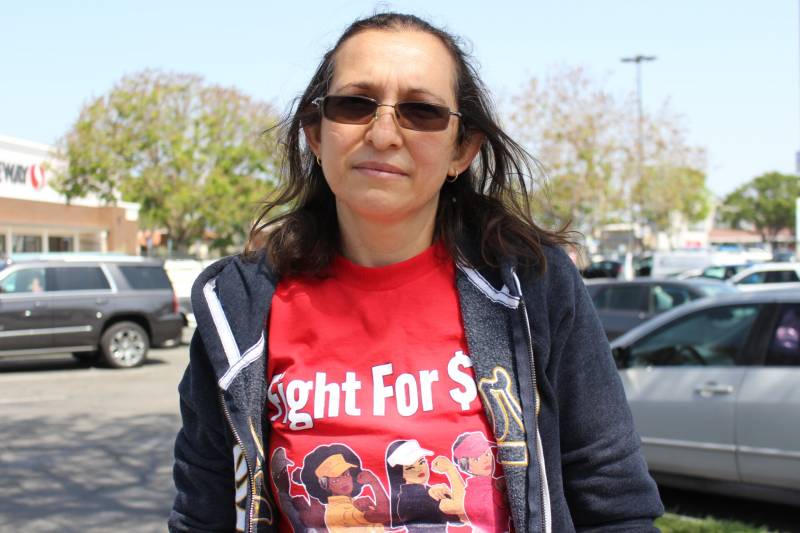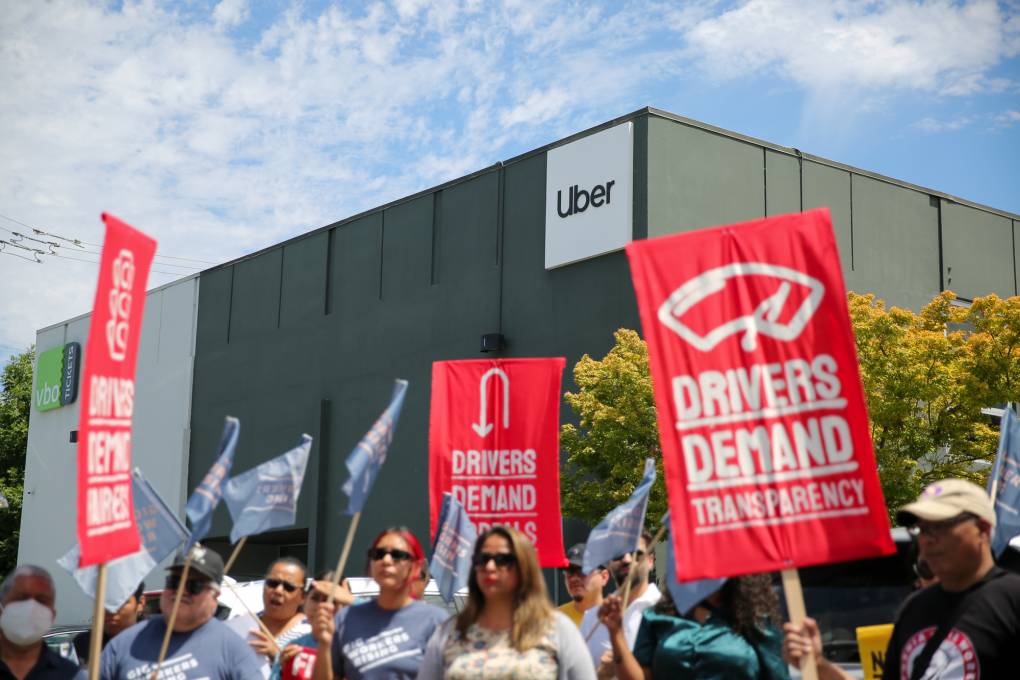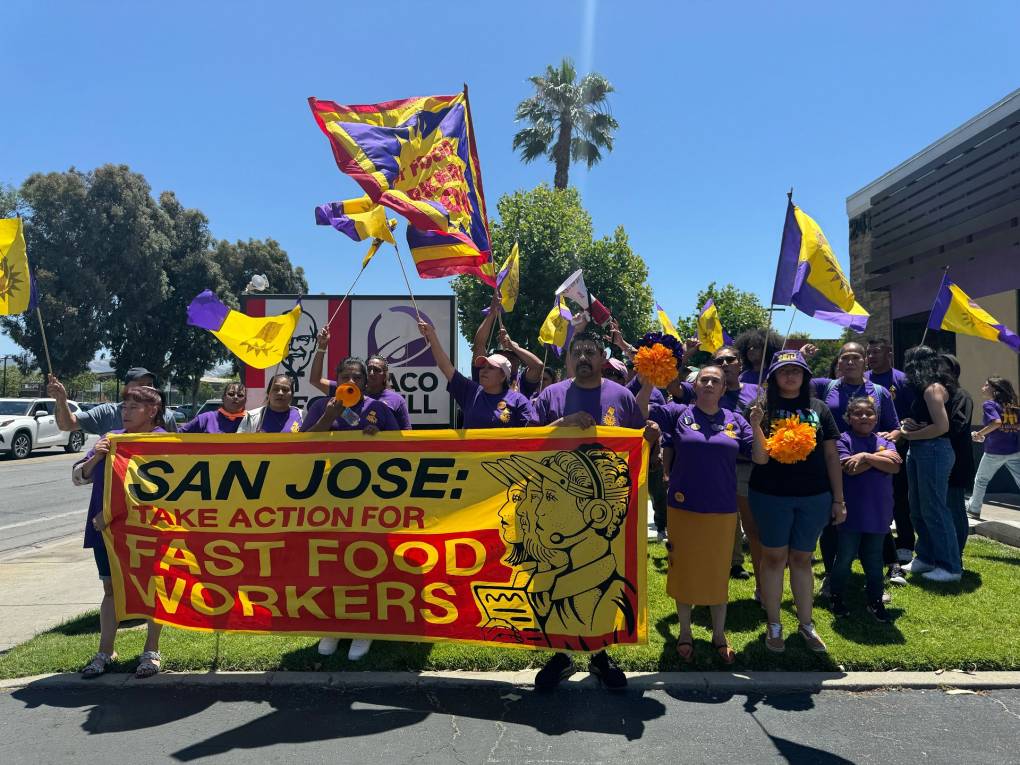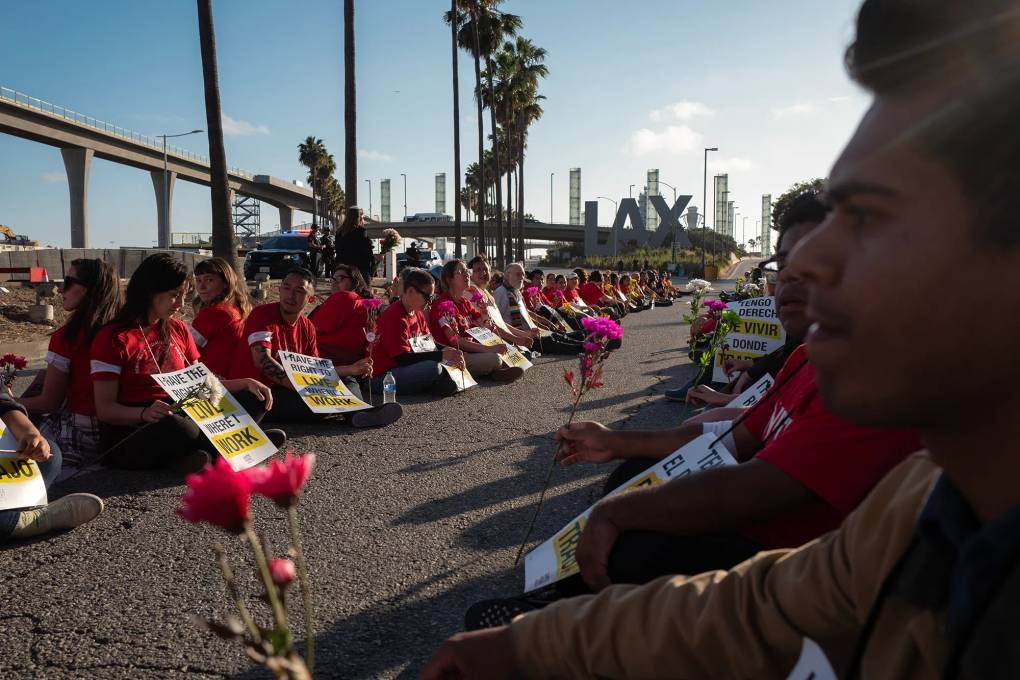Other co-workers at the Subway who got sick with COVID weren’t paid either, according to the complaint Torres filed with the Labor Commissioner’s Office. California law guarantees at least three days of paid sick leave per year and up to two weeks of COVID-related sick leave for businesses with 26 or more employees, like the franchise where Torres works.
Bernal’s and Torres’s employers declined to respond to KQED’s requests for comment.
Many fast-food giants were highly profitable during the pandemic, as chains did not shut down operations as demand increased at drive-thrus. McDonald’s Corp., for instance, reaped nearly $10 billion in profits, as operating income, in 2021, according to company reports to shareholders noted in the survey.
But the financial picture can be remarkably different for the small-business owners who own the chains’ franchise stores, which represent the vast majority of fast-food restaurants, said Ken Jacobs, who chairs the UC Berkeley Center for Labor Research and Education.
Corporations charge franchisees expensive fees while controlling most aspects of operating a chain store, from the way stores look to the ingredients in meals. One thing franchisees can control is what they pay employees. That’s what makes shaving paychecks an attractive option for employers looking to bolster slim profit margins, Jacobs said.
“It becomes very difficult to run a profitable store and follow labor employment laws,” said Jacobs, whose own research also has found frequent wage theft in the fast-food industry. “The real responsible party there is the corporate headquarters. They’re the ones who are setting the rules that are creating the situation. But who the law currently holds accountable is the store owner because they are making that decision on the ground.”
Previous studies also have found high levels of wage theft in the fast-food industry. But industry lobbyists and representatives countered that the new results were misleading, partly because of the sample size of respondents.
“This survey relies on a small sample size and does not represent how McDonald’s and its local franchisees are focusing on the well-being of restaurant employees,” a spokesperson for McDonald’s Corp. said in a statement.
The spokesperson added that in 2021, McDonald’s increased hourly wages at company-owned restaurants by an average of 10%, and saw many franchises also raise wages and offer their staffers benefits like additional paid time off and tuition assistance.
“We will continue to focus on what’s most important to our people — including pay and benefits, training and growth opportunities, and recognition and appreciation — to attract and retain talent in this competitive hiring environment,” the spokesperson said.
Jack in the Box, Subway, Taco Bell, KFC, Carl’s Junior and other companies did not return KQED’s request for comment.
AB 257, known as the FAST Recovery Act, would allow workers to have a greater say in their labor conditions, by creating a council that includes them, as well as employers, franchisers and state labor enforcement agencies. The council would have the authority to set minimum standards for the industry and tackle problems like wage theft.
The bill, which passed the state Assembly with the minimum number of votes and now faces a battle in the state Senate, also would make fast-food corporations liable for fines for labor law or other violations by franchisees, and allow those small-business owners to sue corporations for contracts that prevent compliance with the laws.
Supporters contend that if the companies saw hits to their profits, they’d change franchise rules to ultimately improve working conditions for frontline workers.
David Huerta, president of SEIU California, said lawmakers should support vulnerable food workers who were considered essential at the height of the pandemic.
“Fast-food workers understand that they are victims of a system, cards that have been stacked against them,” he said. “They want a change.”
But Jeff Hanscom of the International Franchise Association, which opposes the bill, said the state should focus on enforcing the laws already on the books to address bad actors, rather than “taking away opportunities” from small-business owners. The proposed regulation would also hike fast-food prices, he said.
“In addition to forcing these hard working entrepreneurs to become employees of their brands, the FAST Act will increase prices at the worst time for millions of working Californians hit hardest by rising food, gas and housing prices,” Hanscom, who leads the associations’ lobbying efforts at the state level, said in a statement.



